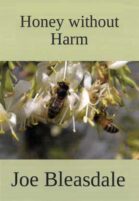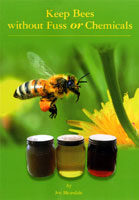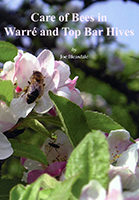Many who are concerned about ecology and the ethical treatment of animals argue that eating honey is harmful to bees and the environment. I believe there are valid reasons for their concerns in the way that most honey is produced. Here are some of the practices in worldwide use that I think exploit and harm bees:
* Feeding sugar or syrup to replace honey removed from the hive.
* Importing bees from distant locations or foreign countries.
* Keeping too many hives in an area that cannot sustain them and the local population of pollinating insects.
* Applying chemicals or medication in the hive.
* Moving hives long distances for pollination services to areas devoid of plant diversity because of herbicides and insecticides.
These and other beekeeping practices taught and followed.in local and national beekeeping organisations are. either inefficient or at worst harm the bees and the environment. In this book I examine them and explain why they are harmful and in many cases unnecessary. I believe most beekeepers don’t want to harm their bees, so I explain my alternative approach, which is to respect honeybees as wild creatures and be sympathetic to their instincts. It is possible to care for them and harvest honey sustainably and without harm or exploitation.
This book incorporates my previous “Keep Bees without Fuss or Chemicals” and the best seller, “Care of Bees in Warré and Top Bar Hives”, available from Northern Bee Books and includes my further experiences in beekeeping since their publication. It describes in detail the care of bees in all hive conventional frame hives, the Warré hive, the Horizontal Top Bar and Long hives.
JOE BLEASDALE is a retired systems engineer and has kept bees over 40 years in the counties of Hampshire and Somerset. He is married, with a daughter who teaches Yoga and a son who owns an orchard in Wales and s_ells cider and apple trees. He worked as a volunteer gardener for the National Trust at Stourhead, and there with a fellow volunteer established its apiary. In 2015 he cared for the hives at The Newt in Somerset and is a member of the Bee Team. In 2023 he restored the apiary at the Tintinhull National Trust Garden. He is a member of the Somerset branch of the British Beekeeping Association and the Frame circle of Natural Beekeepers.





